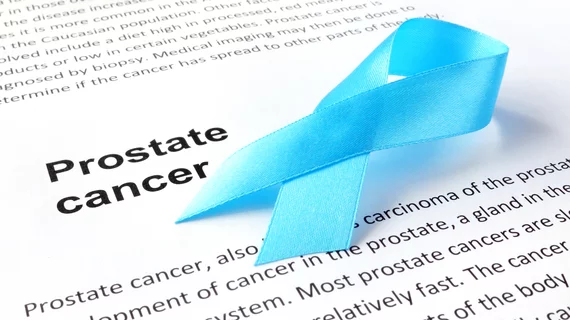NIH partners on $26.5M study analyzing prostate cancer disparities in black men
Major healthcare organizations, including branches of the National Institutes of Health (NIH), have launched a $26.5 million study to investigate the genetic and socioeconomic factors surrounding black men’s increased susceptibility to more aggressive forms of prostate cancer, according to an NIH release.
The Research on Prostate Cancer in Men of African Ancestry: Defining the Roles of Genetics, Tumor Markers and Social Stress (RESPOND) study is backed by the National Cancer Institute (NCI) and National Institute on Minority Health and Health Disparities (NIMHD)—both part of the NIH—along with the Prostate Cancer Foundation (PCF).
“Understanding why African-American men are more likely to be diagnosed with aggressive prostate cancer than men of other racial and ethnic groups is a critical, unanswered question in cancer disparities research,” said NCI Director Ned Sharpless, MD, in the statement. “This large, collaborative study can help the cancer research community better understand and address these disparities.”
Researchers intend to enroll 10,000 black men with prostate cancer into the study. Their goal is to examine potential associations between aggressive disease and exposure to neighborhood or environmental stresses such as discrimination, early-life adversity and segregation, according to the release.
Additionally, the study will look at biological factors including DNA and tumor samples to understand gene variants associated with aggressive prostate cancer, and if there is any relationship between genetic changes and environmental factors.
“No group in the world is hit harder by prostate cancer than men of African descent, and, to date, little is known about the biological reasons for these disparities, or the full impact of environmental factors,” said Jonathan W. Simons, MD, and PCF’s president and CEO. “We celebrate our partnership and applaud NIH for spearheading this study, which we believe will help pave the way for groundbreaking discoveries that will improve health equity for African-American men and their families.”

